To help manage symptoms, switch to more absorbent period products, make healthy lifestyle changes and explore treatment options

Uterine fibroids can cause frustrating symptoms, like heavy bleeding, pain and fatigue. And dealing with these life-altering symptoms day after day can significantly impact your mental health, too.
Advertisement
Cleveland Clinic is a non-profit academic medical center. Advertising on our site helps support our mission. We do not endorse non-Cleveland Clinic products or services. Policy
So, what can you do to relieve your symptoms? Gynecologic surgeon Megan Billow, DO, weighs in.
Dr. Billow shares tips and strategies that can help you cope with symptoms of uterine fibroids, like:
Keep in mind that symptoms vary from person to person, and some don’t experience any real symptoms at all. But if you do, here’s what may help.
Heavy menstrual bleeding (menorrhagia) is one of the hallmarks of life with uterine fibroids. If you find that tampons and pads aren’t cutting it, consider turning to a reusable period product instead.
“You may find that using a menstrual cup or period underwear — or both — helps to better prevent leaks,” Dr. Billow suggests. “These products can sometimes absorb or collect more blood than disposable products, which allows you to go longer between changes.”
Uterine fibroids can hurt — badly — and dealing with that pain can be exhausting. It can deplete your energy levels.
For mild or occasional fibroid pain, these methods may help:
Advertisement
One more note about using over-the-counter pain medications to manage fibroid pain: “If you’ve been relying on them for everyday use, ask your provider about other options,” Dr. Billow advises. “Prescription medications can control your hormone levels, which can make your periods lighter and also help with cramping and pain.”
Uterine fibroids can be painful, and the bleeding can be intense, which can also impact your sex life. And all of those can negatively affect your quality of life.
“If you’re not able to participate in or enjoy your daily activities, it can really impact your mental health,” Dr. Billow acknowledges. “And depression and anxiety can interfere with your personal, social and professional life.”
Coping with uterine fibroids can trigger or worsen mental health conditions. In fact, a large research study found higher rates of depression, anxiety and self-harm habits among women diagnosed with fibroids.
But you don’t just have to live with it. Help is available.
“If uterine fibroids are affecting your quality of life, talk to your healthcare provider for help,” Dr. Billow stresses. “And if you feel the urge to hurt yourself, it’s important to reach out for immediate medical care.” In the U.S., you can call or text 988 to be connected to support. You can also chat with counselors online at 988lifeline.org.
Heavy bleeding from uterine fibroids isn’t just an inconvenience. Losing a significant amount of blood each month can also deplete your body’s iron stores over time.
“Low iron can lead to iron-deficiency anemia, which affects the oxygen supply to your organs,” Dr. Billow explains. “Anemia can make you feel weak, tired and out of breath. In severe cases, it can even be life-threatening.”
If you have heavy periods, your provider should take regular blood tests to be sure your iron levels are within healthy limits.
“If your iron levels are low, they may recommend an iron supplement,” she adds. “And if your levels are very low, you may need iron infusions.”
Making some changes to your everyday lifestyle habits may help you find more lasting relief from your uterine fibroid symptoms. Dr. Billow offers these suggestions for better overall well-being:
Advertisement
If you consistently miss work or skip out on social events because of fibroids, those are red flags to seek medical treatment.
“Fibroids typically aren’t life-threatening, and many women have mild symptoms or no symptoms at all,” Dr. Billow notes. “But if your symptoms are severe, they can significantly impact your quality of life — and your provider is there to help.”
Plus, she points out that fibroid symptoms can mimic other conditions that need treatment. So, keep a close eye on your health and menstrual cycle and talk to your provider if you experience:
Not all fibroids need treatment. But if they’re negatively affecting your everyday life, you have choices. Ask your provider to help you figure out what’s best for you.
“Treatment options range from medications and minor procedures to minimally invasive surgeries,” Dr. Billow says. “In short, if uterine fibroids are hurting your quality of life, you don’t have to just grin and bear it. We can help.”
Advertisement

Sign up for our Health Essentials emails for expert guidance on nutrition, fitness, sleep, skin care and more.
Learn more about our editorial process.
Advertisement
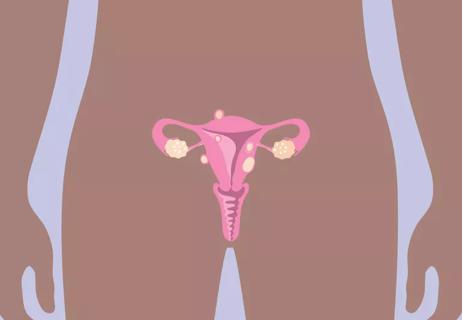
Depending on their size, these noncancerous growths can create an abdominal bulge
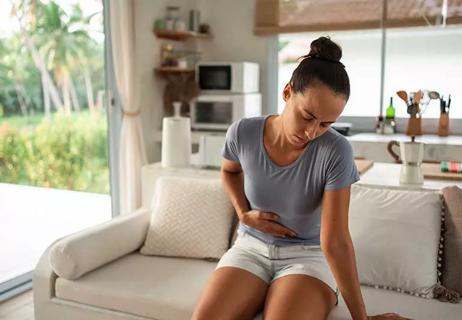
Depending on size and location, they can affect your rectum, stomach, bladder and kidneys

Eating more fruits and veggies and less red meat could help prevent or shrink fibroids
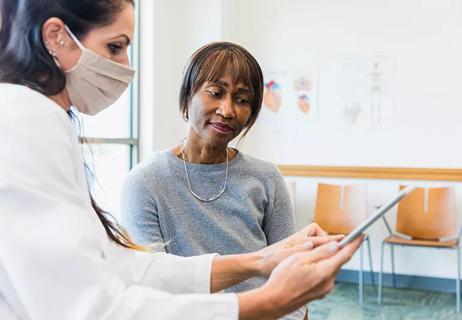
How uterine fibroids can change with your body
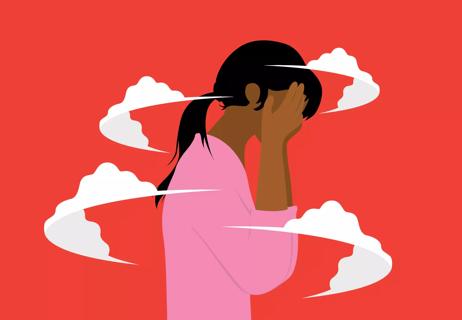
If you’re living through fatigue due to fibroids, there are ways to cope
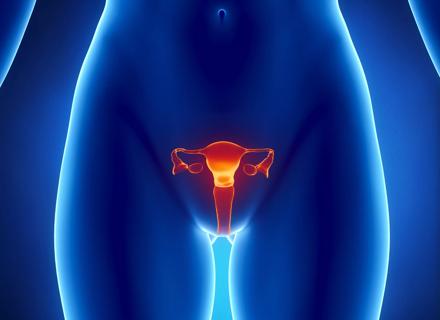
Treatments can help, besides a hysterectomy

It’s important to angle it toward your rectum or back, along the natural curve of your vaginal canal

Yes, you can pee with a tampon in; no, they won’t stretch out your vagina or make cramps worse!

Even small moments of time outdoors can help reduce stress, boost mood and restore a sense of calm

A correct prescription helps your eyes see clearly — but as natural changes occur, you may need stronger or different eyeglasses

Both are medical emergencies, but they are very distinct events with different causes